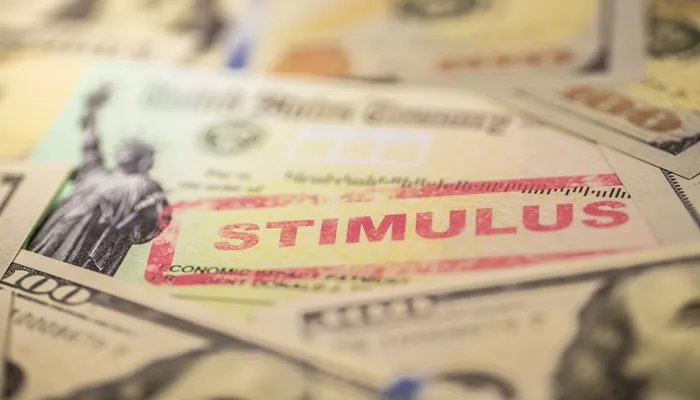A series of new policies aimed at boosting the economy are expected to be introduced shortly. These policies will cover areas such as “new infrastructure and new urbanization,” “major projects and major strategies,” and the stabilization of foreign trade. Experts assert that the early implementation of these new policies will contribute to stabilizing market expectations and achieving prompt results.
The Role of “Two New” Policies
This year, the “Two New” policies have been strengthened and expanded, emerging as a crucial engine for expanding domestic demand. The latest data highlights their effectiveness: purchase subsidies for digital products like mobile phones have driven sales surpassing 140 billion yuan. Retail sales of home appliances have witnessed double-digit growth for eight consecutive months. In the first four months of this year, investment in equipment and tools increased by 18.2% year-on-year.
Future Plans for “Two New” Policies
Journalists have learned that the National Development and Reform Commission (NDRC) will take several key steps in the coming period. It will accelerate the disbursement of funds, collaborate with the Ministry of Finance to complete the settlement of funds for the 2024 consumer goods trade-in program promptly, and allocate subsequent funds. The NDRC will enhance fund utilization efficiency by establishing a direct and rapid access mechanism for ultra-long-term special treasury bonds. Additionally, it will introduce and implement policies for interest subsidies on equipment renewal loans to lower the financing costs for various business entities.
The NDRC will also urge relevant departments to simplify the subsidy application process, clarify the review and payment timelines, implement a pre-approval system for funds, improve the consumer experience, and relieve the pressure on businesses for upfront capital. Moreover, it will strengthen policy reserves, closely monitor and evaluate the progress of all work, conduct in-depth research on incremental and reserve policies in the “Two New” fields, and introduce them in a timely manner after proper approval procedures.
Zhang Yiqun, deputy director of the Performance Committee of the China Society of Finance, suggested that one of the main directions for the future expansion of the “Two New” policies may focus on durable goods, including electrical appliances, kitchenware, bathroom fixtures, and sanitary ware.
Significance of Investment and Upcoming Initiatives
Investment plays a pivotal role in maintaining stable growth, adjusting the economic structure, fostering new growth drivers, benefiting people’s livelihoods, and preventing risks. As of now, more than 99% of the over 5,000 specific projects related to the 102 major projects under the 14th Five-Year Plan have completed their planned tasks.
A responsible person from the NDRC revealed that efforts will be made to release the full list of projects for the “Two Major” construction and central budgetary investment for 2025 by the end of June. Meanwhile, a new policy-based financial tool will be established to address the issue of insufficient project capital. Recently, many regions have held relevant working meetings to plan and reserve projects eligible for the new policy-based financial tool, with a particular focus on emerging industries and green development. Tao Chuan, chief economist of the Research Institute of Minsheng Securities, predicted that the quota of the new policy-based financial tool is likely to be around 500 billion yuan. Assuming the investment leverage effect is similar to that of the policy-based and development-oriented financial tools in 2022, the new tool is expected to drive effective investments ranging from 6 trillion to 6.5 trillion yuan.
Measures for Stabilizing Foreign Trade
Foreign trade serves as a key link for the smooth operation of the domestic and international dual circulation and is one of the “three main drivers” of economic growth. Sheng Qiuping, Vice Minister of Commerce, introduced that the government will increase financial support and reduce the domestic sales costs of foreign trade enterprises. Relevant departments will further expand the scale and coverage of export credit insurance to boost the confidence of foreign trade enterprises in accepting orders.
Policies for Stabilizing Employment
Regarding employment stabilization, Yu Jiadong, vice minister of the Ministry of Human Resources and Social Security, stated that new policies will be introduced at an accelerated pace. Support for enterprises to expand employment will be increased, more employment subsidies will be provided to individuals, and the proportion of unemployment insurance refunds for enterprises severely affected by tariffs will be raised.
Li Zhan, an economist at the Research Department of China Merchants Fund, proposed that measures such as job retention subsidies, guaranteed loans, employment subsidies, vocational skills training, and the expansion of work-for-relief programs should be introduced as soon as possible. Strengthening public employment services and moderately increasing policy intensity are also recommended. In addition, efforts to stabilize exports and enhance economic and trade cooperation are ongoing. For regions like the Yangtze River Delta and the Pearl River Delta, targeted support measures such as “one industry, one policy” and “one enterprise, one policy” should be implemented.
Relevant departments emphasized that they will persist in conducting regular and transparent policy research and reserve work, continuously improve the policy toolkit for stabilizing employment and the economy, and ensure that policies can be promptly introduced and implemented when needed.
Outlook on Macro Policies
Wang Qing, chief macro analyst at Orient Jincheng, predicted, “Monetary policy still has significant room for ‘moderately loose’ measures in the second half of the year, and fiscal policy will also introduce more incremental measures to boost consumption and expand investment. The continuous efforts of domestic macro policies will be the most reliable factor in stabilizing economic operations.”
Related topics:
- The Oecd Has Significantly Lowered Its Growth Forecast for the United States. Trump’s Tariff Policies Have Dampened the Global Economic Outlook.
- Sabah, Malaysia will introduce policies to regulate the oil palm biomass industry
- Dalio Once Again Warns: The Us Debt Is Approaching a “Death Spiral”, And It May Fall into a “Critical Situation” In Three Years!

